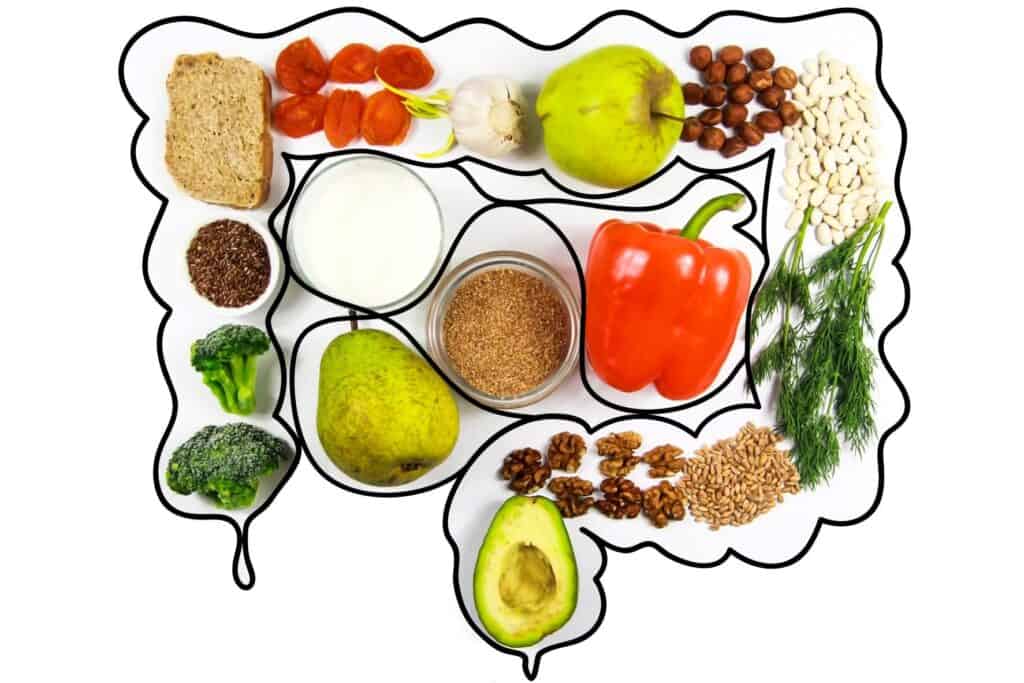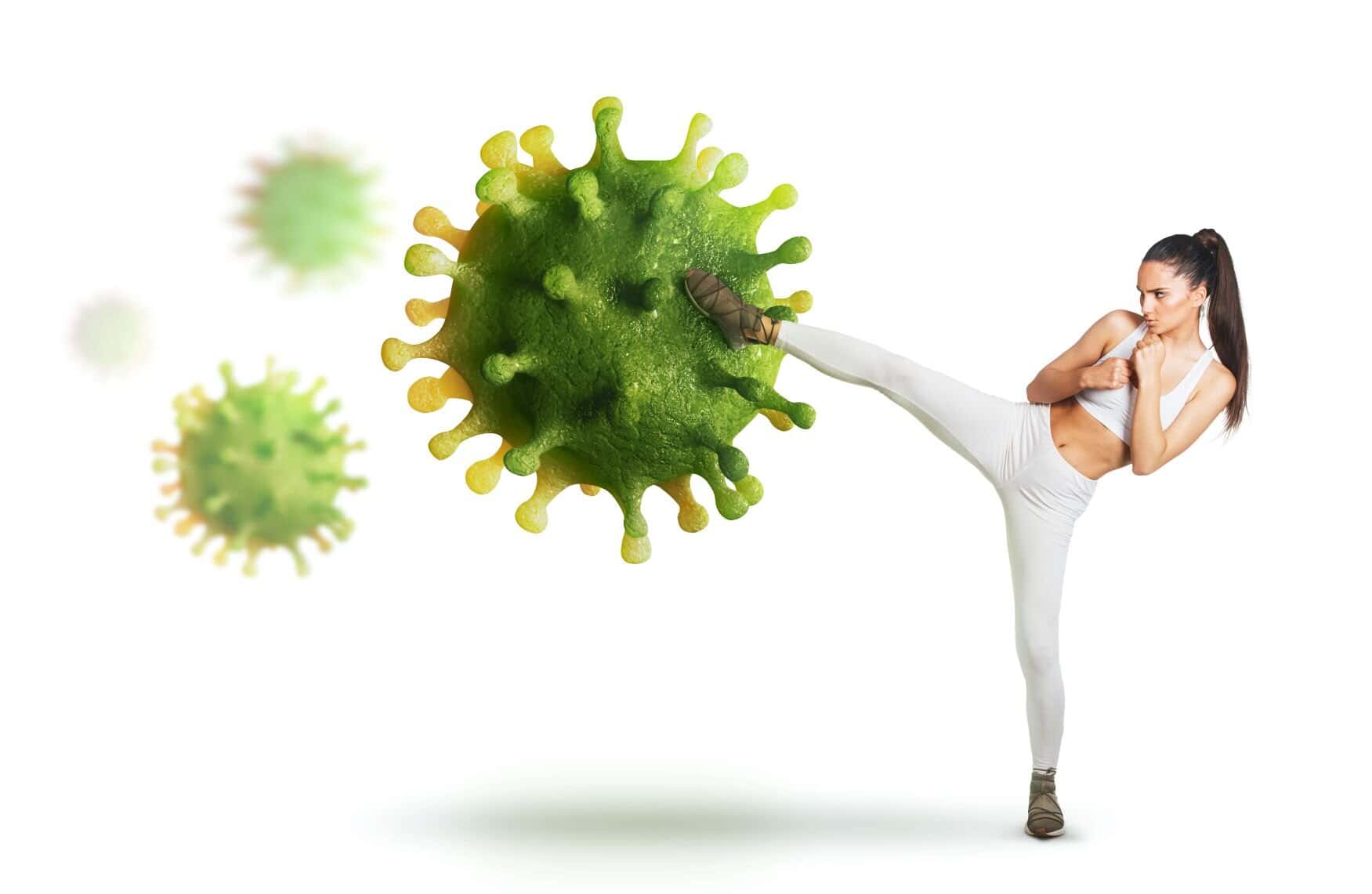

How your gut affects your health and why having good gut health is critical
Of course, what happens in your gut affects conditions related to your digestive system.
If your microbiome is off, you may experience symptoms such as bloating, gas, diarrhea or constipation.
Or you may have chronic conditions like irritable bowel syndrome, Crohn’s disease, or gastroesophageal reflux disease (GERD), among others.
But there has been extensive research done over the past few decades indicating that gut health affects far more than what goes on in your digestive tract.
In fact, gut health may have an impact on almost everything from your heart to your mental well-being.
Gut health has been linked to conditions such as:
Digestive Health
Many of the microbes in your gut are forms of good bacteria that help with digestion, nutrient absorption, and more.
But when the gut’s bacteria fall out of balance, you can experience various gastrointestinal problems.
These problems include irritable bowel syndrome and Crohn’s disease.
Endocrine Disorders like Obesity, Weight Gain, and Diabetes

Gut bacteria plays a role in the body’s metabolism, and there could be an increased risk of diabetes and obesity when gut bacteria levels become imbalanced.
Research is on in terms of looking at how signals from the gut affect metabolism and contribute to problematic health conditions like Type 2 diabetes.
Brain Health

The brain and the gut have a strong connection, which is why some people feel sick to their stomach under stress.
In fact, the brain and the gut send signals to one another all the time.
For this reason, problems with your gut or gut bacteria can contribute to anxiety, depression, or stress.
But at the same time, these sorts of conditions can also cause problems in the gut.
Some researchers believe that the gut also may have an impact on chronic pain and possibly even mood and behavior.
Heart Health

Researchers have found that when we consume foods like eggs and red meat, it’s problematic for our digestive tract.
Certain types of gut bacteria convert the nutrient, choline, into a problematic substance called trimethylamine N-oxide (TMAO, for short).
Unfortunately, elevated levels of TMAO can contribute to a higher risk of stroke, blood clots, and other conditions.
Another study on lab mice found that gut microbes may play a role in helping repair damage from heart attacks by regenerating tissues, but this needs further research before we have a better understanding of whether this may be consistent in humans.
The Immune System

The gut helps build and boost the body’s immune system and even helps protect against infection by communicating with immune system cells.
A study from 2018 found that a baby’s gut bacteria varies depending on whether they are breast or formula fed, and that these bacteria can then impact their immunity.
Babies who were breastfed tend to have healthy gut microbiota and may be more resistant to some adverse health conditions.
Researchers believe there may even be a connection between a healthy infant gut microbiota and the ability to protect against health conditions like obesity and diabetes later in life.
Cancer

When the balance in the gut microbiota is disturbed, commensal bacteria may invade the gut lining and surrounding tissues and cause inflammation.
In this regard, it has been shown that chronic inflammation may be a driver in the development of tumors.
Correspondingly, the gut microbiota may induce immunological and cellular pathways to eliminate pathogens invading the body and trigger an immune response to prevent cancer.
Gut microbiota can even affect the efficiency of chemotherapeutic drugs. Many factors, including the foods you eat, can impact the type and balance of bacteria found in your gut.
Symptoms of an Unhealthy Gut
You may have an occasional bout with a digestive disorder, such as a stomach bug or a reaction to something you ate.
But if your gut microbiome is off, signs and symptoms will be more chronic, or they may come and go.
Some signs that your gut health isn’t optimal include:
– Gas/bloating
– Heartburn/acid reflux
– Abdominal pain
– Nausea
– Constipation
– Diarrhea
– Unintentional weight changes
– Food intolerances
– Fatigue
– Skin irritation
– Inflammation
– Heart burn
– Sleep disturbances & fatigue
– mood/emotional state – such as high stress, low mood or anxiety
– high frequency of infectious illnesses – such as the common cold.
Causes of an Unhealthy Gut
Not eating a diverse diet

Generally, a rich and diverse gut flora is considered to be a healthy one. A lack of diversity within the gut bacteria limits recovery from harmful influences, such as infection or antibiotics.
A diet consisting of a wide variety of whole foods, such as fruits, vegetables and whole grains, can lead to a more diverse gut flora.
This is because the food you eat provides nutrients that help bacteria grow. A diet rich in whole foods provides your gut with a variety of nutrients that help promote the growth of different types of bacteria, resulting in a more diverse gut flora.
Unfortunately, over the past 50 years, much of the diversity in the Western diet has been lost. This leads to issues such as poor gut health.
Lack of Prebiotics in the Diet

Prebiotics are a type of fiber that passes through the body undigested and promotes the growth and activity of friendly gut bacteria
Many foods, including fruits, vegetables and whole grains, naturally contain prebiotic fiber.
A lack of them in the diet may be harmful to your overall gut health
Drinking too much alcohol

Alcohol is addictive, highly toxic and can have harmful physical and mental effects when consumed in large amounts
In terms of gut health, chronic alcohol consumption can cause serious problems.
Antibiotic Use

Antibiotics are important medicines used to treat infections and diseases caused by bacteria, such as urinary tract infections and strep throat.
They work by either killing bacteria or preventing them from multiplying and have saved millions of lives over the past 80 years.
However, one of their drawbacks is that they affect both good and bad bacteria.
In fact, even a single antibiotic treatment can lead to harmful changes in the composition and diversity of the gut flora.
Lack of regular physical activity

Recent studies suggest that physical activity may also alter the gut bacteria, improving gut health
One study found that professional rugby players had a more diverse gut flora and twice the number of bacterial families, compared to the control groups matched for body size, age and gender
Stress

Stress can also have a negative impact on the gut microbiome.
Stress can disrupt the immune system and the gut microbiome.
How to have good gut health
In addition to your gut health affecting nearly every aspect of your physical and mental health, it is also affected by many things you do.
For optimal health, it is best to have a diversity of bacteria in your gut, he says. This can be achieved by your diet and other lifestyle factors.
Improving your gut health may start with changing what you eat, but there are also other things you do that can have an impact on your microbiome.
Here are some ways you may be able to improve your gut health:
1. Eating a well-balanced diet

A well-balanced diet includes a mix of fibrous and leafy, green vegetables as well as omega 3 fatty acids like that found in salmon, walnuts and chia seeds can help promote a healthy and diverse microbiome. These are also called prebiotics.
Eat more whole plant-based foods that have lots of fiber, such as fruits, whole grains like rye bread, barley and oats, beans and nuts like chickpeas, beans and lentils, pistachios, cashews and almonds.
2. Limit ultra-processed foods

Eat foods that are as close to their natural state as possible to support your gut health.
While almost all foods have had some kind of processing, it is best to eat foods that are minimally processed. These foods retain their nutritional value and do not usually have added sugar, salt, unhealthy fats or additives such as emulsifiers and artificial sweeteners, all of which may impact your gut health.
Unprocessed foods include fruits, vegetables, wholegrains, unflavoured dairy, eggs, seafood, poultry and lean red meat. Ultra-processed foods include deli meats such as ham and salami, many breakfast cereals, ready-made meals, sweet desserts and many packaged snacks such as chips.
3. Eat more probiotics rich food

Fermented foods like sauerkraut, kimchi, kefir and yogurts with live cultures, are packed with probiotics, which can help you digest food better, boost the immune system and may even help with bloating, gas and diarrhea.
Taking a daily probiotic may also strengthen your digestive and immune systems. Probiotic supplements can also help support a healthy balance in the gut microbiome..
4. Eat foods rich in polyphenols
Polyphenols are plant compounds that may beneficially impact our gut microbiome.
Foods rich in polyphenols include:
– herbs and spices
– colourful fruits and vegetables
– nuts and seeds
– green and black tea
– coffee
– cocoa and dark chocolate.
5. Exercise regularly:

Exercise promotes good bacteria in your gut by reducing stress and promoting endorphins.
6. Drink water

Water is the best fluid to drink and provides benefits to gut health.
Water assists with the breakdown of food, so that your body can absorb nutrients. Water also assists with softening stools, helping prevent constipation.
Drinking plenty of water may also be linked to increased diversity of bacteria in the gut.
7. Reduce High Fat Food

Your gut doesn’t like a lot of red meats & processed, fatty, sugary foods.
These kinds of foods should be strictly avoided.
8. Quit Smoking

Smoking can disrupt the immune system system & the gut microbiome.
9. Limit use of antibiotics

While antibiotics can be very important and useful, they can also have a negative impact on your gut microbiome.
Antibiotics aim to kill the harmful bacteria when you have an infection or illness, but in doing so they can remove some of the beneficial bacteria in your gut.
10. Reduce Stress

Stress can impact your gut health. It’s important to look after your mental health and wellbeing to maintain your gut health.
What you eat, your gut health and your mental health are all linked.
Manage your stress levels by exercising regularly, getting enough sleep, socialising, using relaxation techniques and eating well.
11. Get enough quality sleep

Not getting enough or sufficient quality of sleep may impact your gut microbiome and may contribute to digestive discomfort.